Introduction
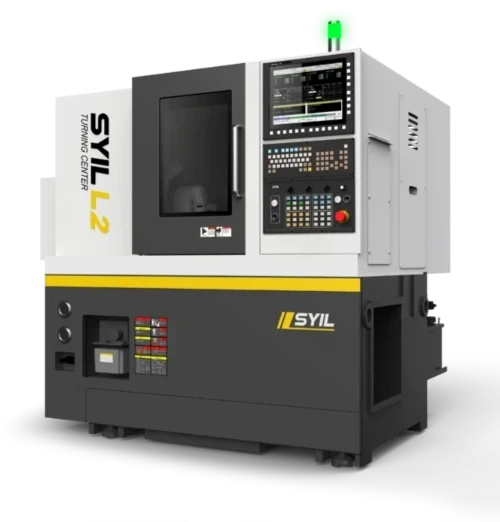
Understanding CNC Turning Precision
CNC turning precision refers to how closely a finished part matches its intended specifications, a critical factor in industries where tolerances are tight. So, what is precision turn? It’s about creating components with exact measurements and minimal deviation from design plans. This level of accuracy ensures that parts fit together seamlessly, reducing waste and improving overall productivity.
Importance of Position Accuracy
Position accuracy in CNC operations cannot be overstated; it plays a vital role in determining how accurately a CNC turning machine performs its tasks. How accurate is a CNC turning machine? The answer lies in its ability to maintain consistent positioning throughout the machining process. High position accuracy minimizes errors and maximizes efficiency, making it essential for high-quality manufacturing.
The Role of SYIL CNC Machines
When discussing reliability and performance in precision machining, SYIL CNC machines often come to mind as industry leaders. Are CNC routers accurate? While routers serve different purposes than lathes, SYIL's commitment to quality ensures that their machines deliver exceptional results across various applications. With advancements in technology and engineering excellence, SYIL continues to redefine what is considered the most accurate CNC machine on the market today.
The Mechanics of CNC Turning
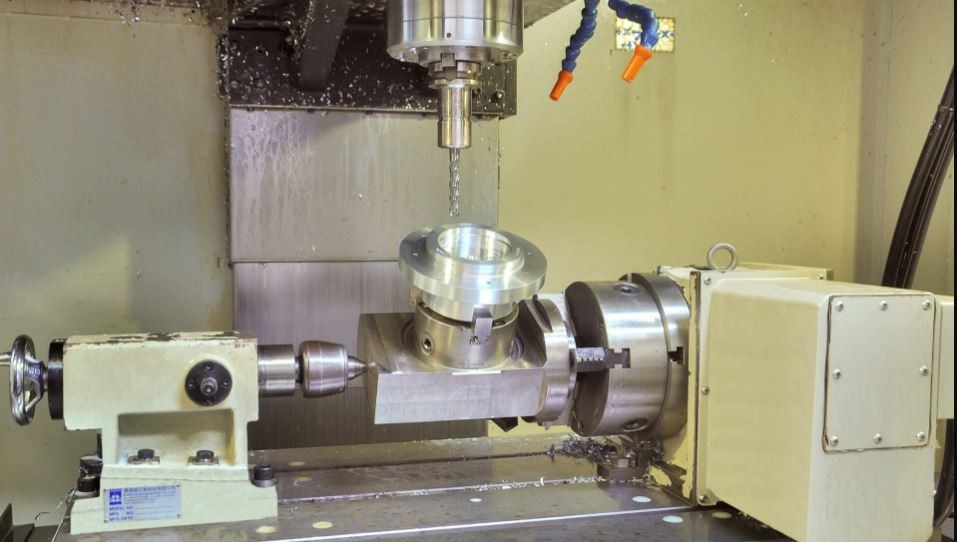
CNC turning is a fascinating blend of technology and artistry, where precision meets engineering. At its core, precision CNC turning involves the use of computerized numerical control to create highly accurate components from various materials. This method allows manufacturers to achieve intricate designs and tight tolerances, making it a cornerstone in modern manufacturing.
What is Precision CNC Turning?
Precision CNC turning refers to the process of shaping materials on a lathe with extreme accuracy using computer-controlled tools. In this process, a rotating workpiece is fed against stationary cutting tools that remove material to achieve the desired dimensions and surface finish. The result? Components that meet stringent specifications, ensuring consistency and reliability in production.
So, what is the precision of a CNC lathe? Typically, CNC lathes can achieve tolerances as tight as ±0.001 inches or better depending on the machine's quality and setup. This level of precision makes them indispensable for industries requiring exacting standards such as aerospace and medical device manufacturing.
How CNC Lathes Achieve Accuracy
CNC lathes employ several strategies to ensure high levels of accuracy during the turning process. First off, they utilize advanced feedback systems like encoders and linear scales that continuously monitor position and movement in real-time. By constantly adjusting based on this feedback, these machines can maintain precise control over tool paths.
Another factor contributing to how accurate a CNC turning machine can be is its construction quality; robust frames minimize vibrations that could affect machining outcomes. Additionally, precise tooling selection plays a crucial role—sharp cutting edges reduce deflection during operation, which further enhances accuracy in producing parts with tight tolerances.
Key Components Influencing Precision
Several key components significantly influence the overall precision achieved in CNC turning operations. The spindle's quality and design are paramount since it governs rotational speed stability while minimizing runout errors—essential for maintaining consistent part geometry during machining processes.
Moreover, tool holders must be designed for rigidity; any flex or movement can lead to inaccuracies known as tool deflection during cutting operations. Lastly, software plays an essential role too; sophisticated CAM (Computer-Aided Manufacturing) systems optimize tool paths for maximum efficiency while ensuring adherence to specified tolerances throughout production runs.
Evaluating CNC Lathe Precision

What is the Precision of a CNC Lathe?
The precision of a CNC lathe is typically defined by its capability to maintain tight tolerances during the machining process. In general, most modern CNC turning machines can achieve tolerances as tight as ±0.001 inches, depending on several factors such as machine condition and tooling used. So, when asking What is the precision of a CNC lathe?, one must consider both the machine's specifications and operational practices that influence these results.
Achieving high levels of accuracy in machining not only enhances product quality but also improves efficiency in manufacturing processes. This leads us to another common question: How accurate is a CNC turning machine? The answer lies in its design features, including spindle speed stability, tool rigidity, and advanced control systems that work together to ensure precise movements during operation.
Factors Affecting CNC Turning Accuracy
Several factors can impact the accuracy of your precision turn operations in a CNC lathe setting. These include mechanical wear and tear on components like bearings and lead screws, which can lead to cumulative errors over time if not properly maintained. Additionally, environmental conditions such as temperature fluctuations can cause thermal expansion that affects positioning accuracy.
Moreover, operator skill plays an essential role; even with state-of-the-art technology, human error can introduce inaccuracies into the process. To truly understand What is the position accuracy of a CNC machine?, one must evaluate these variables collectively rather than in isolation. Regular maintenance schedules and calibration checks are vital for keeping your machinery performing at peak accuracy levels.
Comparing CNC Machines for Precision
When it comes time to compare different models for their precision capabilities, several key indicators should be taken into account: tolerance levels, repeatability rates, and overall build quality are just starting points in this analysis. Questions like What is the most accurate CNC machine? often arise during procurement discussions; however, it's essential to remember that different applications may require different types of machines—what works best for one industry might not suit another.
Additionally, while some might wonder if “are CNC routers accurate?” compared to lathes or mills—the answer depends largely on specific use cases and how those machines are configured for particular tasks within production environments. Innovations in technology continue pushing boundaries regarding what constitutes an accurate machining tool; thus staying informed about advancements is crucial for making sound investment decisions.
In summary, evaluating precision in CNC lathes involves understanding both intrinsic machine capabilities and external influencing factors—allowing businesses to optimize their production processes effectively.
Reliability in CNC Turning Machines
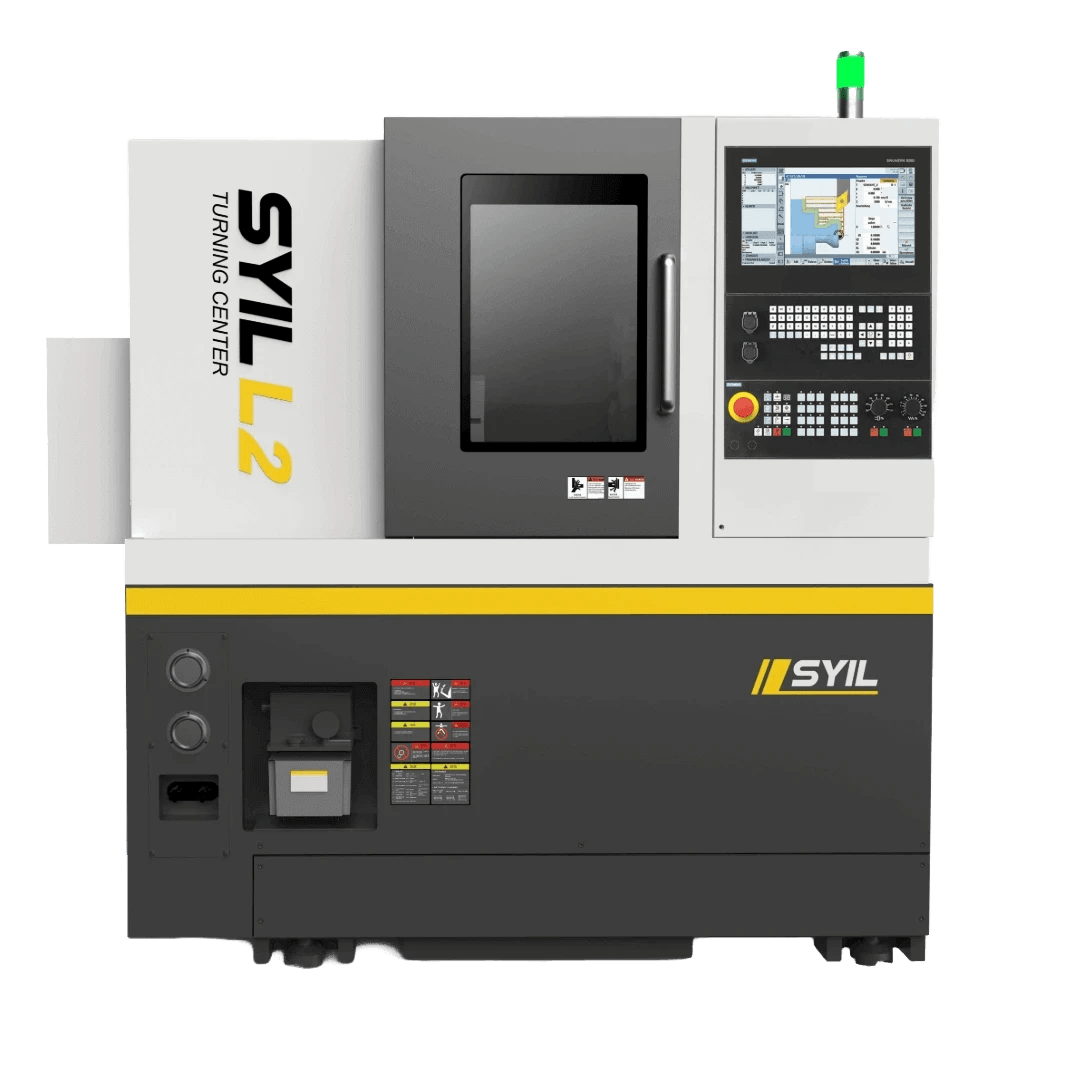
How Reliable Are CNC Machines?
Reliability in the context of CNC turning refers to the machine's ability to maintain its performance standards over time. A well-maintained CNC lathe can achieve remarkable accuracy—often within microns—making it essential for industries that require high precision. When asking “What is the precision of a CNC lathe?” it's crucial to consider not only the machine's specifications but also its reliability during continuous operation.
CNC machines are designed with robust components that contribute to their longevity and performance consistency. Factors such as thermal stability, vibration dampening, and high-quality materials all play roles in ensuring that these machines remain reliable under various working conditions. Ultimately, understanding how accurate a CNC turning machine can be requires an appreciation for both its design and maintenance practices.
Maintenance Tips for Optimal Performance
To ensure your precision turn operations run smoothly, regular maintenance is key. Here are some essential tips: First, keep your machinery clean; dust and debris can affect both reliability and accuracy over time. Second, regularly check alignment and calibration settings; even minor deviations can lead to significant errors in precision CNC turning.
Lubrication is another critical aspect of maintenance; proper lubrication reduces friction between moving parts, thereby enhancing the longevity of your equipment. Additionally, inspect electrical connections routinely; loose or corroded connections can lead to unexpected shutdowns or inaccuracies during operation. By following these practices diligently, you will not only prolong the life of your machine but also enhance its capability to deliver precise results.
Case Studies on SYIL CNC Success
SYIL has established itself as a leader in providing reliable solutions within the realm of precision machining—especially when discussing what is the most accurate CNC machine available today. One notable case study involved a manufacturing firm struggling with inconsistent output due to unreliable machinery; after switching to SYIL's advanced models, they reported improvements in both accuracy and production speed.
Another example highlights a company specializing in aerospace components needing high-precision parts manufactured quickly without sacrificing quality. By implementing SYIL’s state-of-the-art equipment designed specifically for high-accuracy applications like precision turn operations, they achieved remarkable success rates while minimizing waste material—a win-win scenario! These case studies underscore how investing in reliable machinery pays dividends by enhancing overall operational efficiency.
Position Accuracy in CNC Operations
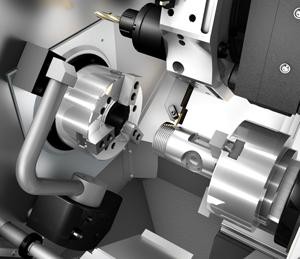
Position accuracy is a crucial aspect of CNC operations, particularly for precision CNC turning applications. This refers to how closely the machine can position its cutting tool relative to the desired coordinates in three-dimensional space. Understanding what is the position accuracy of a CNC machine helps manufacturers ensure that their products meet stringent quality standards and specifications.
What is the Position Accuracy of a CNC Machine?
The position accuracy of a CNC machine is defined as the ability to reach and maintain a specified location within an acceptable tolerance range. In essence, it measures how precise a CNC lathe can be when executing programmed movements. When evaluating what is the precision of a CNC lathe, one must consider factors such as backlash, thermal expansion, and mechanical wear, all of which can influence overall performance.
To quantify this precision further, manufacturers often refer to tolerances measured in microns or thousandths of an inch. For instance, high-quality machines designed for precision turn typically boast position accuracies within ±0.01 mm or better. Such exactness allows industries like aerospace and medical manufacturing to produce components that are not only functional but also compliant with rigorous regulatory standards.
Techniques for Enhancing Position Accuracy
Enhancing position accuracy in CNC operations involves several strategies that target both hardware and software aspects of the machines. One effective technique includes regular calibration and maintenance routines that ensure all components are functioning optimally; after all, how reliable are CNC machines if they aren’t regularly serviced? Implementing advanced feedback systems like linear scales also significantly boosts accuracy by providing real-time data on positioning errors.
Another method involves using high-precision components such as ball screws and linear guides designed specifically for minimal backlash during operation. Additionally, employing sophisticated software algorithms that compensate for thermal expansion can optimize performance further—addressing questions like how accurate is a CNC turning machine? The integration of these techniques not only improves positional fidelity but also extends the lifespan of the equipment.
Real-World Applications of High Precision
High precision in CNC operations translates into numerous real-world applications across various industries where tolerances are paramount. For example, in aerospace engineering, where even minor discrepancies can lead to catastrophic failures, knowing what is precision turn becomes essential for producing critical parts like turbine blades or airframe structures with exact specifications.
Similarly, in medical device manufacturing—which often requires custom implants or surgical instruments—precision machining ensures patient safety while meeting stringent regulatory requirements on product reliability and quality assurance measures. As businesses strive for excellence through automation and innovation, understanding what is the most accurate CNC machine becomes vital for maintaining competitive advantages in these demanding sectors.
The Most Accurate CNC Machines
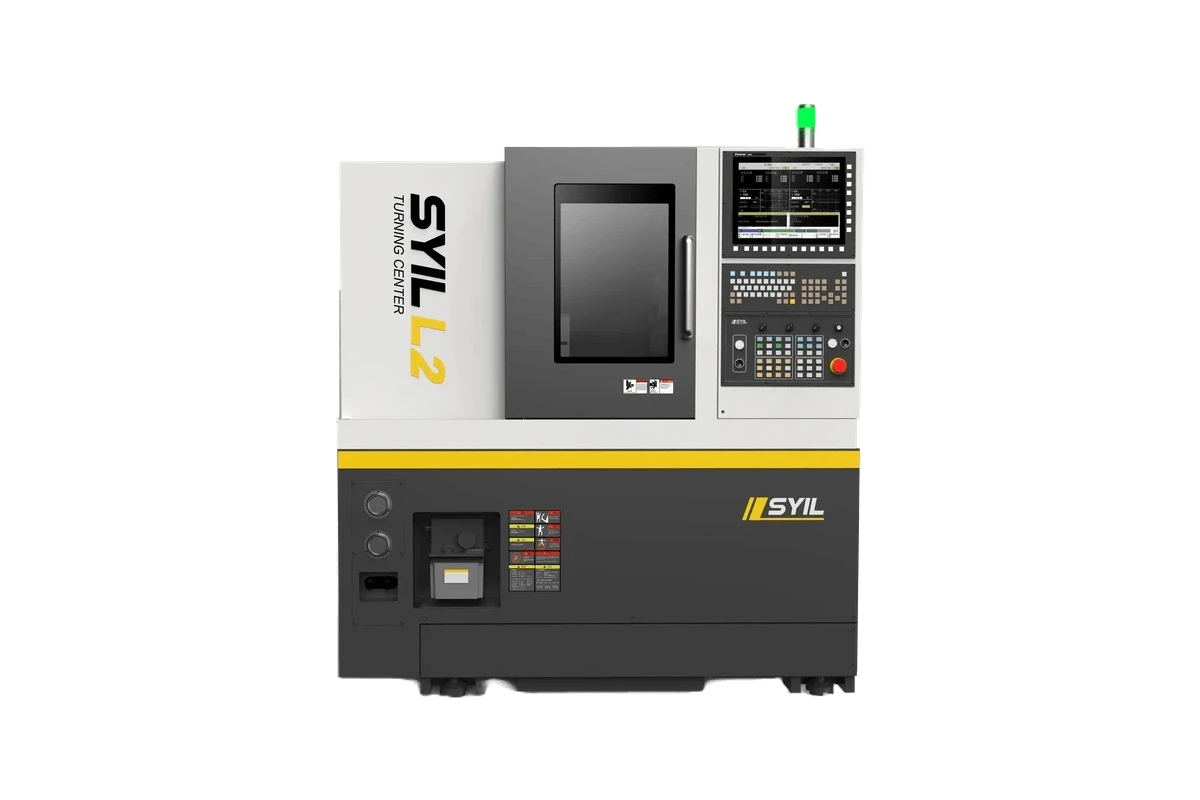
What is the Most Accurate CNC Machine?
The quest for precision in CNC turning has led to machines that can achieve remarkable tolerances. Generally speaking, a high-quality CNC lathe can maintain tolerances within ±0.001 inches or even tighter under optimal conditions. But what is the precision of a CNC lathe? It varies based on factors such as machine design, components used, and operational settings. Therefore, when evaluating how accurate a CNC turning machine can be, one must consider not just its specifications but also how it's maintained and operated.
Innovations in Precision Turning Technology
Recent innovations in precision turning technology have revolutionized how manufacturers approach their projects. From advanced servo motors to state-of-the-art control systems, these innovations enhance overall performance and reliability in CNC operations. Additionally, features like real-time feedback loops and adaptive machining allow for adjustments during production runs—ensuring that what is precision turn translates into tangible results with minimal error rates.
Moreover, many modern machines incorporate AI-driven analytics that monitor performance metrics continuously. This allows operators to identify potential issues before they escalate into significant problems—addressing concerns like How reliable are CNC machines? with confidence.
The Future of CNC Accuracy with SYIL
Looking ahead, SYIL continues to push boundaries in precision CNC turning through ongoing research and development efforts aimed at enhancing their product offerings further. Their commitment to innovation ensures that they remain at the forefront of technology while maintaining exceptional standards in accuracy and reliability across all their machines.
As manufacturers increasingly demand higher levels of accuracy—often asking questions like What is the position accuracy of a CNC machine?—SYIL's advancements will likely lead them toward being recognized as leaders in this domain. With continuous improvements on their existing models and new releases featuring cutting-edge capabilities, SYIL positions itself well for future challenges where customers seek not only high-quality parts but also unmatched precision.
Conclusion

In the ever-evolving world of manufacturing, precision CNC turning stands as a cornerstone of efficiency and quality. Understanding what is the precision of a CNC lathe is crucial for businesses aiming to produce high-quality components with minimal waste. From evaluating how accurate a CNC turning machine can be to exploring the reliability of these machines, the importance of precision cannot be overstated.
Key Takeaways on CNC Precision
Precision CNC turning is not just about cutting metal; it’s about achieving exact specifications that meet demanding industry standards. When we ask, What is precision turn? we delve into how intricately designed processes ensure that every part produced fits perfectly within its intended application. Remember, when considering how reliable are CNC machines, it's essential to recognize that consistent maintenance and modern technology play pivotal roles in sustaining their accuracy over time.
The Impact of Precision on Manufacturing
The impact of precision on manufacturing goes beyond mere numbers; it shapes industries by driving productivity and innovation. High levels of accuracy mean less rework and waste, which translates into significant cost savings for manufacturers—an undeniable advantage in today's competitive landscape. Additionally, when pondering what is the most accurate CNC machine available today, one quickly realizes that advancements in technology are continually pushing the boundaries of what's possible.
Final Thoughts on SYIL and Reliability
In conclusion, SYIL's commitment to delivering reliable and precise machinery has made them a standout choice for those investing in CNC technology. Their machines exemplify what is the position accuracy of a CNC machine should be—highly dependable with an impressive track record in real-world applications. As we look toward the future, it's clear that innovations will continue to enhance precision cnc turning capabilities while ensuring that even CNC routers remain accurate enough to meet stringent demands.

